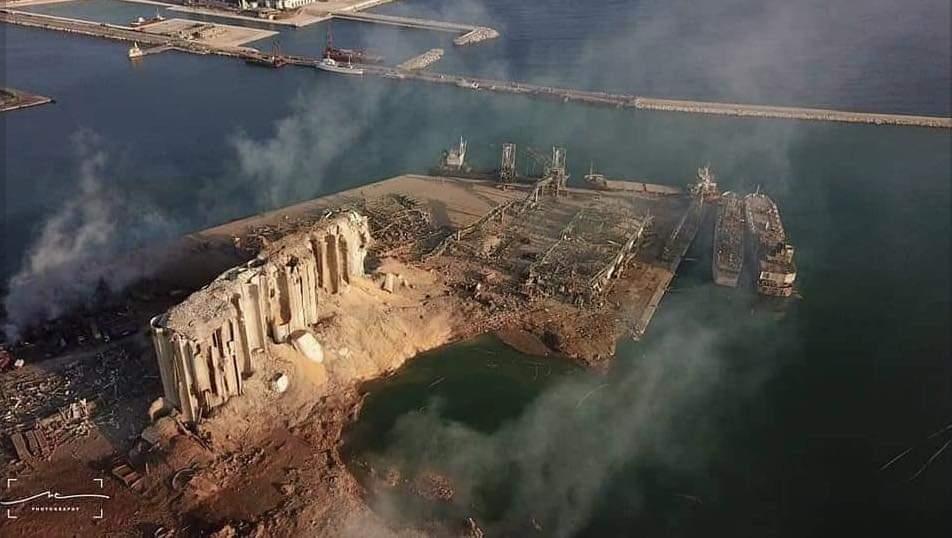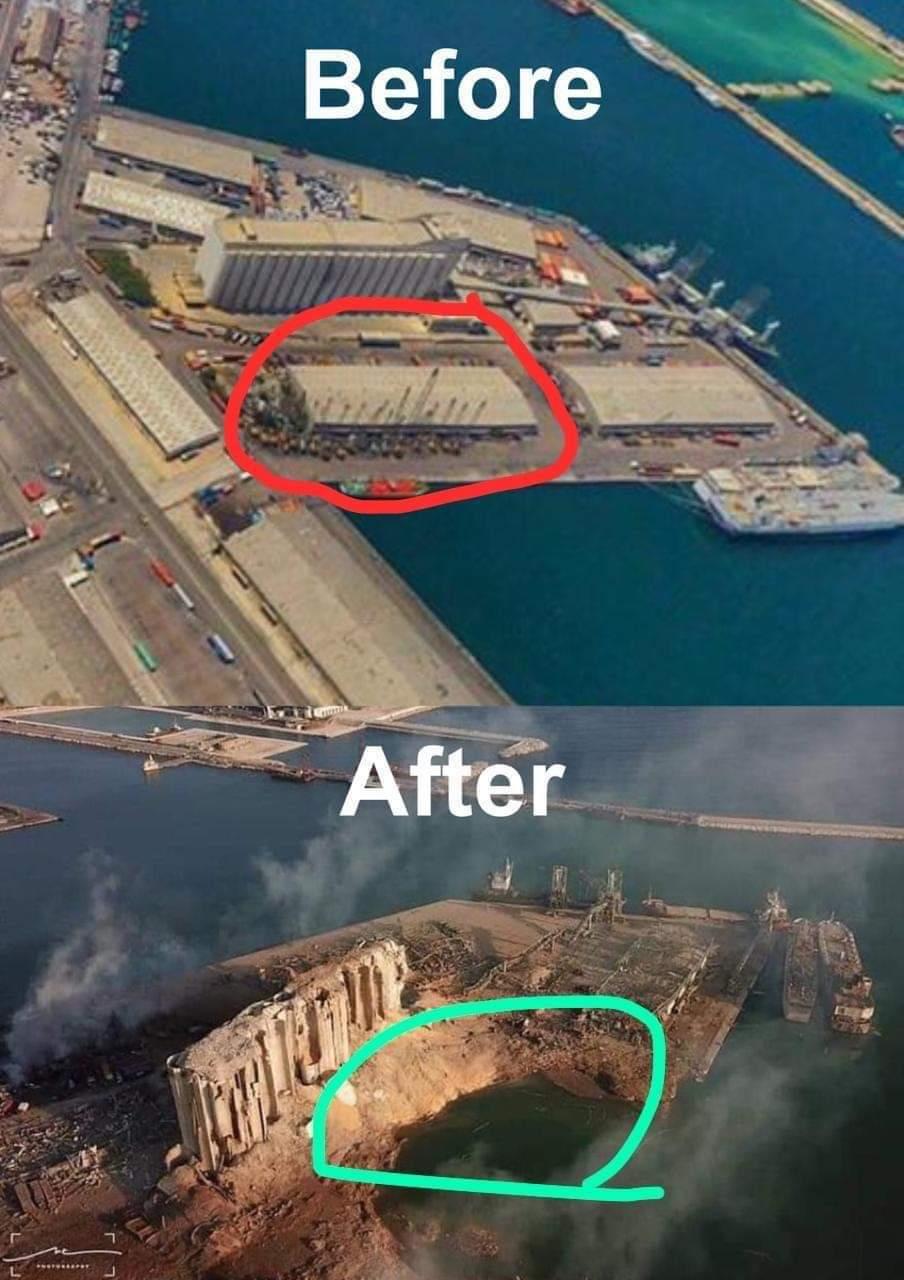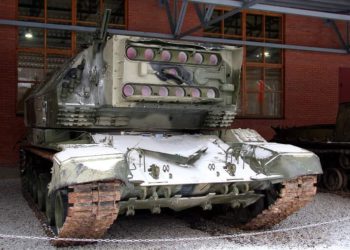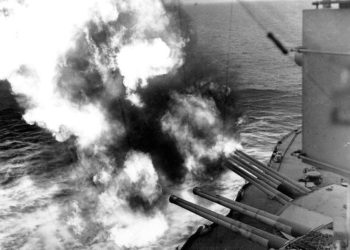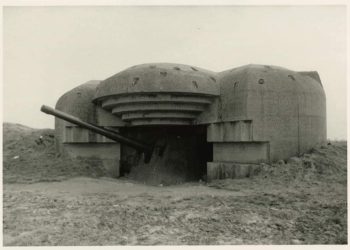Beirut update. On Tuesday the 4th of August, a devastating blast ravaged the port of Beirut, in Lebanon. The detonation prompted an internet meltdown, with everyone trying to understand what had caused such an explosion. Some people immediately pointed a finger toward Israel: Israel and Hezbollah had been skirmishing in the two weeks leading up to the port blast.
Therefore, people wondered if this explosion wasn’t the result of an Israeli attack on a hidden Hezbollah weapon cache/factory. Some went as far as calling this potential attack a nuclear strike!

It seems, however, that this explosion is merely the end-result of a combination of corruption, inertia on the part of the local authorities and gross negligence. In September 2013, a ship called M/V Rhosus sailing from Georgia to Mozambique made a technical stop in Beirut. There were creditors’ claims against either the owner of the ship or the company that chartered it. In any case, the ship was impounded by the Lebanese authorities.
The case was never resolved and the ship’s cargo, 2,750 tons of ammonium nitrate left unclaimed, was disembarked and stored in a nearby warehouse… The port authorities apparently petitioned the courts several times to have the Ammonium Nitrate removed. 6 years later, this literal time bomb was still inside that warehouse when it went off…

While we know what exploded (2,750 tons of ammonium nitrate, confirmed by the Lebanese authorities), we do not know as yet for sure what caused the initial fire / detonation.What we know is that Ammonium Nitrate might degrade over time. We also know that other (flammable) items were stored in the warehouse. Some people talk of fireworks! Finally, there’s strong evidence that welding work was being undertaken on some of the warehouse’s steel doors to reinforce them against theft.

In the meantime, the death toll is now just over 135 people, and more than 5,000 people have been reported wounded. Both numbers are guaranteed to keep on rising as many people are still trapped in the rubble and ruins surrounding the port area.
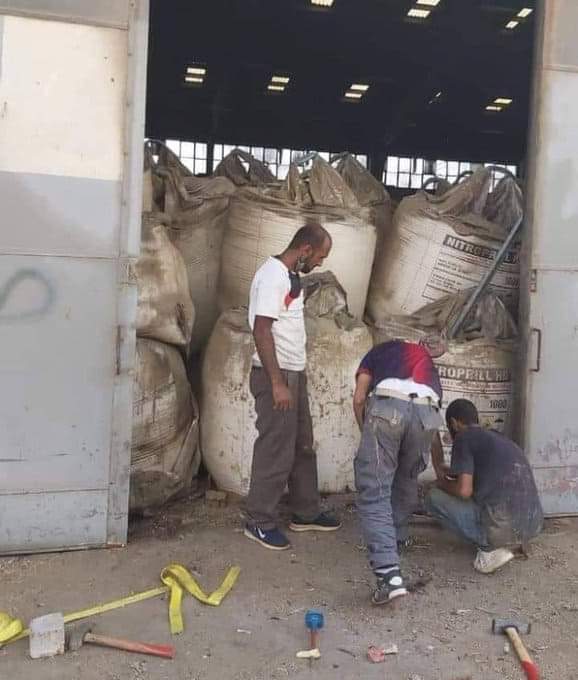
Welding work 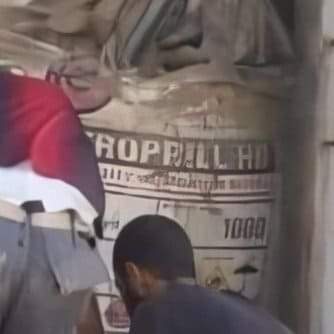
Welding work
The explosion has devastated half of Beirut, with buildings 6 km away from the blast showing damage. The port, which was the country’s main gateway for imported goods including food, has been left completely razed to the ground. A crater 120 metres in diameter now stands where the warehouse once was. The city’s grain elevator, the country’s second-largest, has been left completely gutted, destroying 15,000 tons of grain (85% of Lebanon’s total stock).
This, in a country that was already on the verge of food shortages… 3 hospitals have been destroyed or heavily damaged by the shockwave. The remaining hospitals, which were already overwhelmed by the Covid-19 pandemic, simply can’t cope with the influx of wounded people. 300,000 people have been left homeless.
The detonation was loud enough to be heard in Cyprus, over 200km away. The shock was recorded at between 3.3 and 4.2 on the Richter’s scale on seismometers around the world (figures vary depending on sources). The force of the blast was equivalent to a small tactical nuke with a yield standing at between 1.1Kt and 2Kt, or 15% of the total yield of the atomic bomb that detonated above Hiroshima.
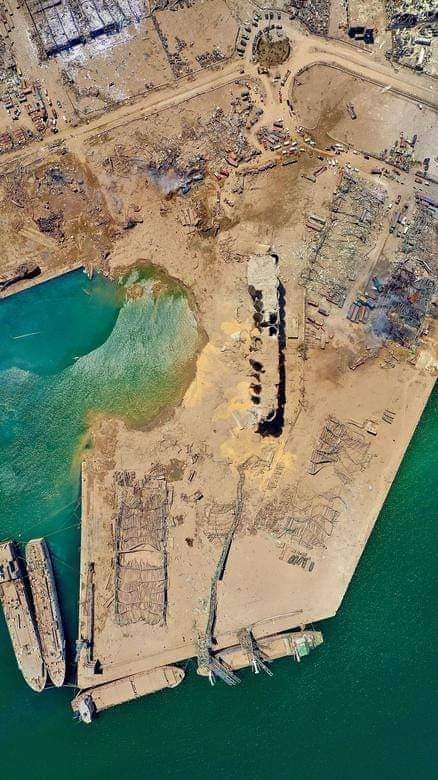
France, Germany, U.K, China, Russia and Israel have offered medical and humanitarian assistance.


